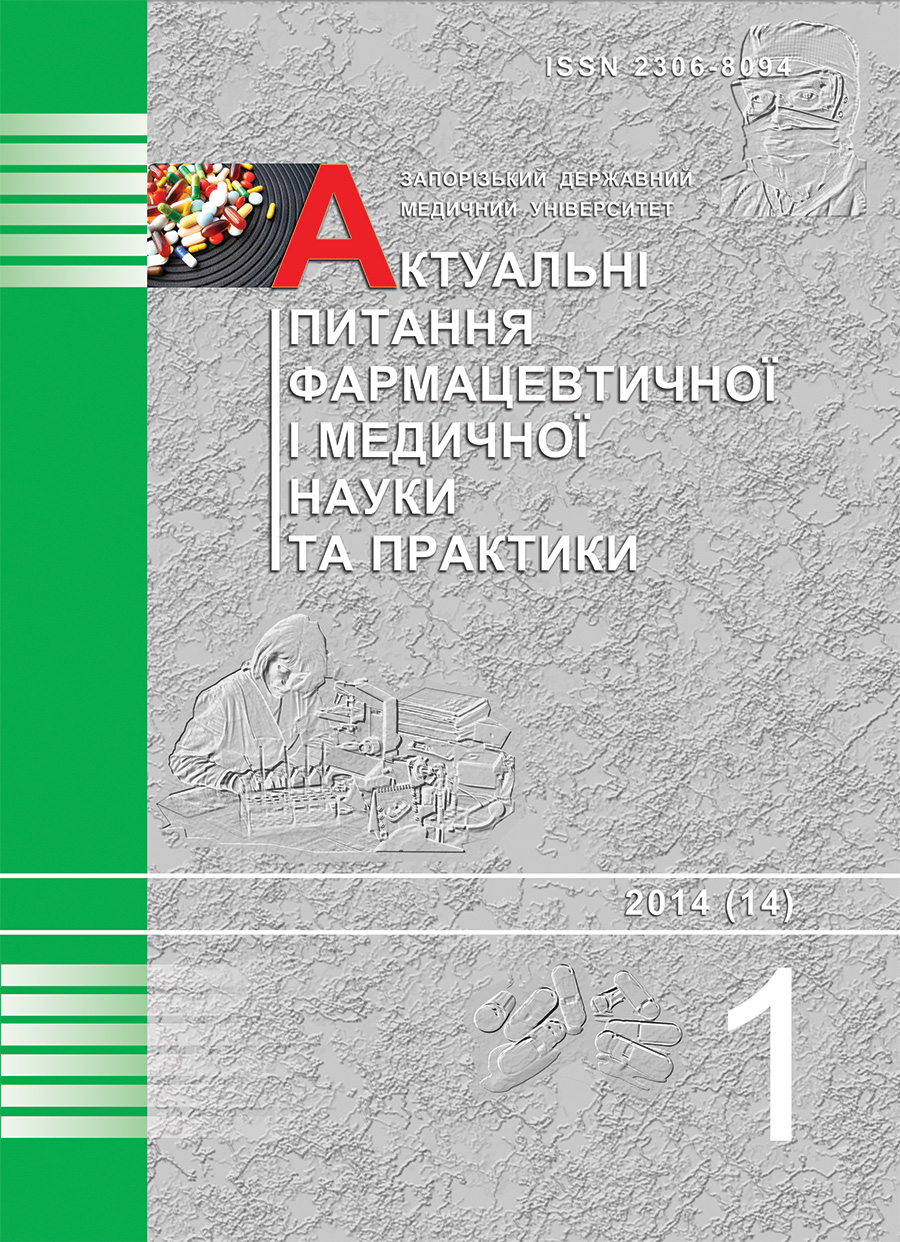PROBLEMS AND NECESSITIES OF INFORMING OF POPULATION OF TERRITORIES, MUDDY RADIO-ACTIVE MATTERS
DOI:
https://doi.org/10.14739/2409-2932.2014.1.24842Keywords:
informing, population, Chernobyl area, radio-active matters, state of healthAbstract
Humanity more critically and responsibly estimates possibilities to control the risks of consequences of human activity. More attention is spent for the spare of notification system about failures on AES and questions of informing population about radiation contamination. The experts of Worldwide nature protection organization of Greenpeace consider that in case of scale failure on AES population presently is badly protected from radiation influencing, as well as before, people are not enough informed about its consequences.
PURPOSE OF WORK. Optimization of informing the population from polluted territories, on the basis of developing the models of self-government local organs’ informative activity and creation the development Centers of associations in obedience to UNESCO Chernobyl' Program and Chernobyl' Programs of UNO.
MATERIALS AND METHODS. Scientific state information generators, which inform people from territories, influenced after AES failure, results of public opinion about the health state and morbidity, its dynamics and also results of the radiation-ecological monitoring of 30-kilometre alienation area according to the radiation state system are collected, generalized and analyzed.
RESEARCH RESULTS. Remote consequences of AES failure have sociological-psychological character. The general dynamics of postchernobil situation among suffering population is determined by negative factors combination, such, as: radical change of ecological terms of dwelling; method and lifestyle, destruction of traditional economic activity of people in agricultural regions; health sharp worsening of considerable part of population; low level of being informed of population in relation to radiation-ecological problems; general change of socio-economic life terms; a socio-economic crisis in the state; errors in social policy on overcoming the consequences of failure, social and medical help.
According to the results of research it is needed to select five principal reasons of the insufficient information of influenced regions’ population: insufficient volume of information which is got by habitants; inadequate form of getting information; absence of informative materials serve system; high level of mistrust of people from polluted regions to any official information; absence of Internet access in Chernobyl area.
CONCLUSIONS.
1. Analysis of postchernobil situation and especially, its remote consequences should be carried out not from the visions of social stress, but from the paradigm of social crises theory.
2. System of informing the population from influenced regions, and also special educational program and adequate forms and methods of ecological education of schoolboys requires native alteration.
3. Centers of development, created on the financial base of local social infrastructure can become associations for a grant of necessary concrete and systematic information about ecological and radiological situation.
References
Аксьонова А. Ядерна енергія ніколи не буде безпечною / А. Аксьонова // Надзвичайна ситуація. – 2012. – № 4. – С. 10–13.
Гарнець О.М. Інформаційні технології як фактори зміни життєдіяльності в кризових спільнотах / О.М. Гарнець // Інформаційні технології і засоби навчання : зб. наук. праць Ін-ту засобів навчання АПН України. – К. : Атіка, 2005. – С. 65–75.
Кірєєв С.І. Радіаційний стан на території 30-кілометрової зони відчуження у 2011 році / С.І. Кірєєв, Б.О. Годун, Д.О. Вишневський та ін. // Надзвичайна ситуація. – 2012. – № 4. – С. 25–36.
Кочін І.В. Система «Спосіб життя – здоров’я» як інформаційна база профілактичної медицини (методологічні і методичні аспекти) / І.В. Кочін // Українські медичні вісті. – 1997. – № 1. – С. 90–91.
Кочін І.В. Оптимізація потоків інформаційного забезпечення населення при надзвичайних ситуаціях / І.В. Кочін, В.Я. Кіктенко, П.І. Сидоренко та ін. // Актуальні питання медичної науки та практики : збірник наукових праць Запорізької медичної академії післядипломної освіти. – Вип. 69 (Ювілейний). – Запоріжжя, 2006. – С. 119–124.
Кочін І.В. Провідні підходи до інформаційного забезпечення населення при надзвичайних ситуаціях техногенного, природного, соціально-політичного та воєнного характеру / І.В. Кочін // Інтеграція національної науки до Європейського наукового простору : зб. тез доп. міжрегіон. наук.-практ. конф. – Запоріжжя : ЗЦНТЕІ, 2006. – С. 34–35.
Кочін І.В. Організація оповіщення населення в разі загрози або виникнення надзвичайних ситуацій та введення особливого періоду / І.В. Кочін, О.М. Акулова, О.О. Гайволя та ін. // Актуальні питання медичної науки та практики : збірник наук. праць. – Запоріжжя : ЗМАПО, 2009. – Вип. 76. – Т. 1. – Кн. 1. – С. 295–306.
Кочін І.В. Моделювання і оцінка впливу системи соціально-гігієнічних факторів на рівень захворюваності як інформаційна основа формування здорового способу життя / І.В. Кочін // Україна. Здоров’я нації. – 2009. – № 1–2(9–10). – С. 140–147.
Кочін І.В. Система оповіщення працівників потенційно небезпечних об’єктів та населення при виникненні або загрозі виникнення техногенної надзвичайної ситуації / [І.В. Кочін, Д.В. Ількаєв, І.Ф. Шило та ін.] // Актуальні питання медичної науки та практики : збірник наук. праць. – Запоріжжя : ЗМАПО, 2010. – Вип. 77. – Т. 1. – Кн. 1. – С. 70–75.
Кочін І.В. Організація сучасної системи оповіщення населення України при надзвичайних ситуаціях / [І.В. Кочін, С.В. Гелдаш, В.М. Ільїна та ін.] // Запорожский медицинский журнал. – 2010. – № 3. – С. 162–166.
Кочін І.В. Сучасна парадигма соціально-гігієнічних досліджень повсякденної життєдіяльності та стану здоров’я населення / І.В. Кочін // Східноєвропейський журнал громадського здоров’я. – 2012. – № 2–3. – С. 174–182.
Кочін І.В. Наукове обґрунтування стратегії розвитку психотерапевтичної і медико-психологічної допомоги при надзвичайних ситуаціях / [І.В. Кочін, О.М. Акулова, П.І. Сидоренко та ін.] // Східноєвропейський журнал громадського здоров’я. – 2012. – № 2–3. – С. 183–187.
Лихтарев И. Риски в условиях нормальных радиационно-ядерных технологий и при радиационных авариях / И. Лихтарев, Л. Ковган, В. Демин // Соціальні ризики та соціальна безпека в умовах природних і техногенних надзвичайних ситуацій та катастроф. – К. : Стилос, 2001. – С. 193–240.
Ягупов В. Військова психологія : підручник / В. Ягупов. – К. : Тандем, 2004. – 656 с.
Downloads
How to Cite
Issue
Section
License
Authors who publish with this journal retain copyright and grant the journal right of first publication with the work simultaneously licensed under a Creative Commons Attribution License that allows others to share the work with an acknowledgement of the work's authorship and initial publication in this journal.


